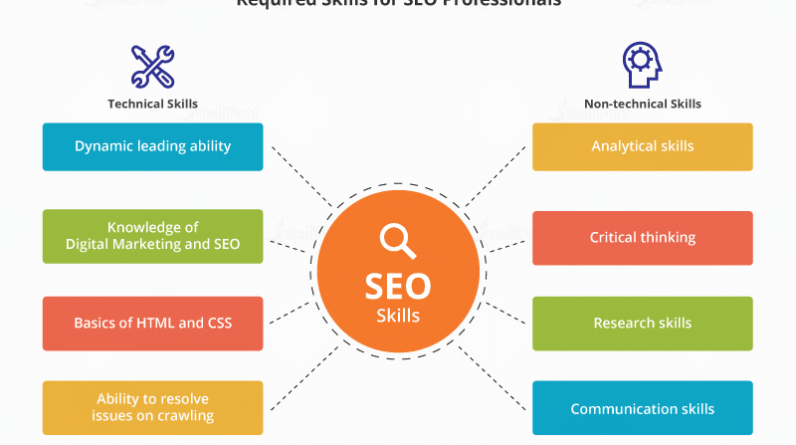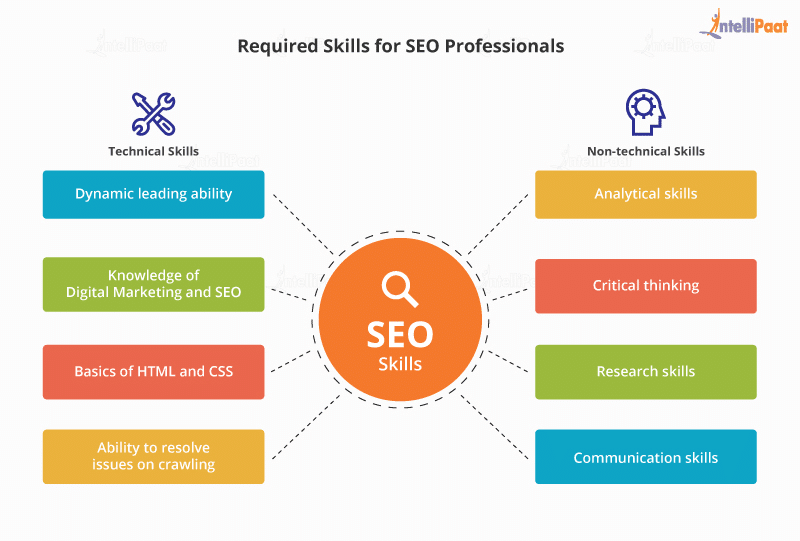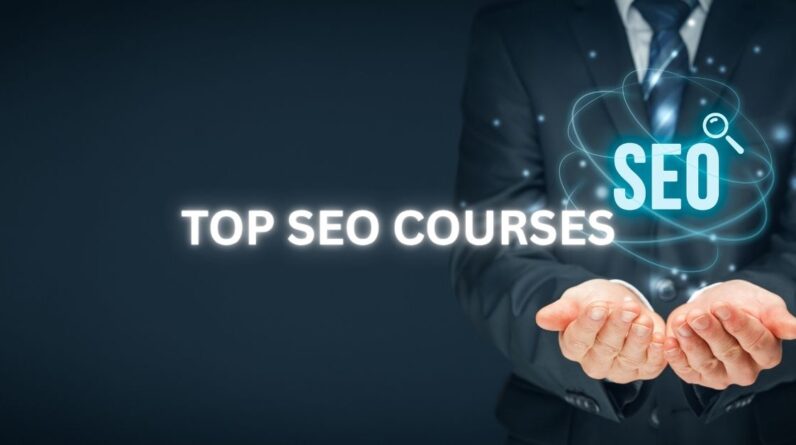
The digital landscape thrives on visibility, and an SEO career offers a dynamic path to drive that visibility for businesses worldwide. Search engine optimization (SEO) powers websites to rank higher on search engines like Google, boosting organic traffic and fueling business growth. For those eyeing an SEO career, the field promises diverse roles, from SEO specialist to strategist, with opportunities to shape how brands connect with audiences. This article uncovers the realities of an SEO career, addressing key questions about its viability, entry barriers, earning potential, and steps to break into the industry.

Is an SEO Career a Smart Choice?
An SEO career is a compelling choice for those passionate about technology and marketing. The demand for SEO professionals remains robust as companies prioritize online presence. According to LinkedIn, SEO-related job postings grew by 20% from 2023 to 2025, reflecting the industry’s hunger for talent. SEO drives measurable results—higher rankings, more clicks, and increased revenue—making it a high-impact field. Professionals at companies like Moz and SEMrush report job satisfaction due to the blend of creativity, analytics, and problem-solving.
However, success in an SEO career demands adaptability. Search engines evolve constantly, with Google’s algorithms updating multiple times yearly. Staying ahead requires continuous learning and a knack for decoding data. For those who thrive on challenges and high standards, an SEO career delivers both purpose and opportunity.
Breaking Into SEO: How Hard Is It?
Entering an SEO career isn’t as daunting as it seems, but it requires strategic effort. Unlike fields demanding a bachelor’s degree, SEO values skills over formal education. Many SEO experts, like Rand Fishkin of SparkToro, started with self-taught knowledge and hands-on experience. The industry welcomes beginners who demonstrate curiosity and a willingness to learn.
The challenge lies in standing out. With coveted full-time jobs at agencies like iProspect or in-house teams at brands like Amazon, competition is fierce. Beginners must master SEO tools like Ahrefs or Screaming Frog and understand search engine mechanics. Summer internships offer a low-pressure entry point, providing exposure to real campaigns. For instance, SEO Sherpa’s internship program emphasizes keyword research and content optimization, equipping interns with practical skills. Building a resume with these experiences is critical to landing an SEO job.
What Are SEO Career Programs?
SEO career programs are structured training initiatives designed to fast-track entry into the field. These programs, offered by companies like Manaferra or HubSpot, blend coaching, hands-on projects, and mentorship. They typically cover SEO fundamentals—keyword strategies, backlinks, and analytics—while fostering soft skills like communication. Manaferra’s Career Development Program, for example, has helped over 500 participants secure SEO jobs since 2020, boasting a 90% placement rate.
Programs vary in format. Some, like IIMSkills, combine four weeks of live training with an eight-week paid internship, ensuring participants gain real-world exposure. Others, like Moz’s free resources, offer self-paced courses on technical SEO and site audits. These programs set high standards, preparing candidates for coveted full-time jobs or freelance SEO work. They’re ideal for those seeking structured guidance to achieve career milestones.
Earning Potential in an SEO Career
The question of “how much is an SEO career worth?” hinges on experience and location. In the U.S., entry-level SEO specialists earn $45,000–$60,000 annually, per Glassdoor data from 2025. Mid-level SEO experts at companies like Backlinko command $80,000–$120,000, while senior strategists in tech hubs like San Francisco can exceed $150,000. In Canada, SEO jobs average $65,000, with top earners nearing $100,000.
High-paying SEO jobs reward expertise in analytics, technical SEO, and leadership. Agencies like Distilled or in-house roles at Shopify prioritize candidates who can optimize sites for search engines and drive organic traffic. Freelance SEO experts, managing multiple clients, can earn six figures by leveraging tools like SurferSEO to deliver results. While not every SEO job guarantees wealth, the potential to excel financially is clear for those who master the craft.
Landing an SEO Job with No Experience
Securing an SEO job without experience is achievable with the right approach. Start by building a portfolio showcasing SEO projects, even self-initiated ones. Optimize a personal website or volunteer to improve a local business’s site rankings. These efforts demonstrate initiative and practical skills.
Summer internships are a game-changer. Programs at companies like Skills Spy Academy offer remote, unpaid internships focusing on SEO techniques like backlink building. These roles provide access to mentors and real campaigns, strengthening your resume. Free resources, such as Google’s SEO Starter Guide or SEMrush Academy, teach core concepts like HTML optimization and keyword strategies. Networking on social media channels like LinkedIn or at industry events hosted by Search Engine Journal can also open doors to entry-level roles.
Pro Tip: Create a blog to experiment with SEO. Track your progress using Google Analytics to show tangible results to employers.
Starting SEO as a Beginner
For beginners, launching an SEO career starts with mastering the basics. Learn how search engines crawl and index sites, and study on-page factors like meta tags and content structure. Free tools like Google Keyword Planner introduce keyword research, while Yoast SEO guides content optimization. These steps build a foundation for more advanced techniques.
Join online communities on social media, such as Reddit’s r/SEO, to ask questions and discover trends. Enroll in short-term training, like Coursera’s SEO Fundamentals, to gain structured knowledge. Hands-on practice is key—optimize a friend’s website or audit a small business’s page. Early exposure to SEO tools and processes sets beginners on a path to success.
Pro Tip: Focus on one niche, like local SEO, to develop expertise faster and stand out to employers.

Challenges of Securing an SEO Job
Is it hard to get a job in SEO? The answer depends on preparation. The industry’s high standards mean employers seek candidates with both technical and creative skills. Understanding HTML, analytics, and search engine algorithms is non-negotiable. Yet, the rise of remote SEO jobs, as seen on platforms like RemoteOK, has lowered geographic barriers, increasing access to opportunities.
The catch is competition. Coveted full-time jobs at top firms like Merkle require a polished portfolio and internship experience. Without these, candidates may struggle. Soft skills, like managing client expectations, also matter, especially in agency roles. To overcome hurdles, prioritize training and network aggressively at conferences like BrightonSEO.
Is SEO a High-Paying Career?
SEO’s earning potential makes it a standout career. Senior SEO experts at companies like Adobe or freelance consultants serving e-commerce brands often surpass $120,000 annually. High-paying roles demand mastery of SEO tools, data analysis, and strategies that boost rankings. For instance, optimizing Shopify stores for search engines can yield significant client retainers.
However, salaries vary by company size and region. Small businesses may pay entry-level SEO specialists less, around $40,000, while global firms offer premium packages. The ability to achieve measurable results—more organic traffic, higher conversions—directly ties to earning power. Investing in coaching from experts like Brian Dean of Backlinko can accelerate progress toward high-paying roles.
Building a Long-Term SEO Career
Sustaining an SEO career requires ongoing learning. Search engines like Bing and Google roll out updates that shift ranking factors, demanding agility. Subscribing to newsletters from Search Engine Land keeps professionals informed. Joining programs like Moz Pro offers access to tools and training, ensuring skills stay sharp.
Networking is equally vital. Connect with SEO experts on LinkedIn or attend webinars hosted by Ahrefs. These interactions spark collaborations and job leads. Over time, professionals can transition to consultancy, like Craig Dewart of MyContentPal, who built a thriving business from early SEO work. A long-term SEO career rewards those who blend technical prowess with strategic vision.
Summer Internships: Your Launchpad
Summer internships are a cornerstone of an SEO career. They offer hands-on experience, from auditing sites to crafting content strategies. Companies like Forbes and SEO Career run internship programs that often lead to coveted full-time jobs. Interns gain exposure to tools like Google Search Console and learn how to align SEO with broader marketing goals.
These programs, typically lasting 8–12 weeks, immerse interns in real projects. For example, RemoteOK lists remote SEO internships that teach backlink analysis and site optimization. Interns who excel—by meeting high standards and showing initiative—often secure job offers. Building a network during internships also unlocks future opportunities.
Key Skills for SEO Success
Success in an SEO career hinges on a mix of technical and creative skills. Familiarity with HTML and CSS helps optimize page structure, while analytics tools like Google Analytics track performance. Keyword research, though foundational, requires creativity to uncover high-impact terms. Understanding search engine algorithms ensures strategies align with ranking factors.
Soft skills, like clear communication, are critical when presenting data to clients. Training in tools like SurferSEO or SEMrush enhances efficiency, while staying updated on industry practices via blogs like Search Engine Roundtable sharpens expertise. Beginners should prioritize free resources to build these skills early.
Navigating the SEO Industry as a Newcomer
The SEO industry is fast-paced but welcoming to those who show interest. Start by auditing other websites to practice identifying optimization gaps. Platforms like Upwork offer freelance SEO gigs, providing early exposure to client work. These projects, though small, help create a portfolio that showcases your ability to improve rankings.
Coaching from industry leaders, like those at The Click Academy, accelerates learning. Newcomers should also leverage social media to follow SEO experts like Aleyda Solis, gaining insights into cutting-edge practices. With persistence, beginners can transition from internship to coveted full-time jobs.
Scaling Your SEO Career
To scale an SEO career, focus on measurable impact. Optimize sites to boost organic traffic, and document results in your portfolio. Advanced training, like Ahrefs’ certification courses, deepens knowledge of backlinks and technical SEO. These credentials impress employers and clients alike.
Freelancers can scale by managing multiple sites, while in-house professionals can aim for leadership roles. Companies like Zappos value SEO experts who align strategies with business goals. By maintaining high standards and embracing new technology, professionals can achieve long-term success.
The Role of Analytics in SEO
Analytics is the backbone of an SEO career. Tools like Google Analytics and SEMrush provide data on traffic, rankings, and user behavior. Mastering these tools allows SEO specialists to refine strategies and prove ROI. For instance, analyzing bounce rates can reveal content gaps, guiding optimization efforts.
Interns often start by learning analytics during summer internships, gaining hands-on experience with real data. This exposure builds confidence and prepares professionals for high-stakes roles. Staying familiar with analytics ensures SEO work remains aligned with search engine goals.
Why SEO Internships Matter
SEO internships are more than a resume booster—they’re a proving ground. Interns tackle tasks like site audits, content creation, and backlink research, learning the ropes under expert coaching. Programs at agencies like WebFX emphasize practical skills, preparing interns for coveted full-time jobs.
Remote internships, like those listed on RemoteOK, offer flexibility and access to global teams. These experiences teach interns to meet high standards while working independently. By the internship’s end, participants have a portfolio and network that propel their SEO career forward.
Crafting a Standout SEO Resume
A strong resume is your ticket to an SEO job. Highlight internship experience, even unpaid ones, to show hands-on skills. Include metrics, like “improved site rankings by 15% through keyword optimization.” List familiarity with SEO tools and certifications from platforms like HubSpot Academy.
Tailor your resume to each job, emphasizing relevant skills like analytics or technical SEO. If you lack experience, showcase a personal project, like a blog optimized for search engines. A polished resume, paired with a robust LinkedIn network, positions you for success.
The Future of SEO Careers
The SEO industry is evolving, driven by AI and voice search. Search engines now prioritize user intent, rewarding sites with engaging content. Professionals must adapt by mastering AI tools like SurferSEO and staying updated on algorithm shifts. Blogs like Moz predict that technical SEO will remain critical for large sites.
For newcomers, this evolution creates opportunities. Summer internships and free training programs provide access to cutting-edge practices. By building expertise and a strong network, anyone can launch an SEO career that thrives in this dynamic field.
Taking the First Step
Starting an SEO career begins with action. Enroll in a free course, like Google’s SEO Fundamentals, to grasp core concepts. Experiment with a personal website to apply techniques like keyword optimization. Seek summer internships to gain exposure and coaching from industry pros.
The path to coveted full-time jobs starts small but scales fast. With dedication, high standards, and a focus on results, an SEO career offers a rewarding journey. Launch your journey today—optimize, analyze, and achieve.







